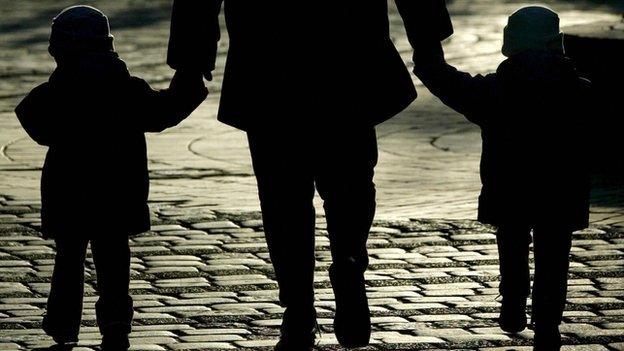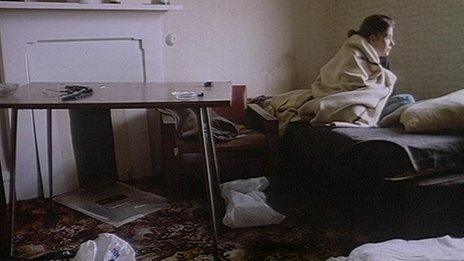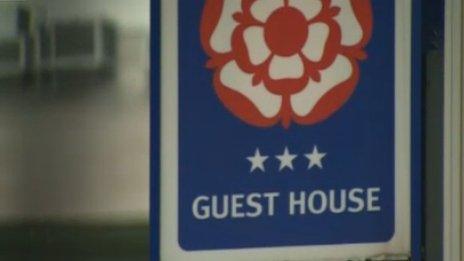Homeless children 'at highest level since 2011'
- Published

More than 90,000 children in England, Scotland and Wales are living in temporary accommodation, says Shelter
The number of children living in temporary accommodation in Britain is at a three-year high, a charity's analysis of official figures suggests.
More than 90,000 children in England, Scotland and Wales are without a permanent home, says Shelter.
The charity's chief executive Campbell Robb said the "heart-breaking" figures suggest the equivalent of three children in every school are homeless.
Ministers said they had increased spending to prevent homelessness.
Shelter analysed data published by the three administrations.
'Unsafe'
The charity's calculations suggest that in the second quarter of 2014, ending in June, there were 90,569 children living in temporary accommodation in England, Scotland and Wales.
The equivalent figure for 2011 was 76,650, suggesting a rise of 13,919 children without permanent homes in three years.
The figures indicate that while the numbers in temporary accommodation fell in Scotland and Wales, they rose in England.
The researchers were particularly disturbed to find that in June 2014 some 2,130 families in England were living in bed and breakfast hotels, almost double the figure for the same period in 2011 when the figure was 1,210.
Families in this position told the charity that they often felt unsafe, with children exposed to drug and alcohol abuse, fighting, swearing and racist language.
Some said they had to live in one room, share kitchen and bathroom facilities with strangers, and eat meals on the bed or on the floor.
The accommodation was sometimes in poor condition and some parents had to share beds with their children.
Others reported depression, panic attacks and their children bed wetting.
"My son became depressed for the first time in his life and wouldn't get out of bed and my daughter even started self-harming," said one mother.
Others said their predicament had damaged their children's ability to make and keep friends and affected schoolwork.
Missing school
Some told the charity of journeys of up to 90 minutes to school and a few failed to attend lessons altogether.
"In the 21st century it cannot be right that homeless children are experiencing severe emotional distress, facing three hour round trips to school and having to eat their dinner on the floor," said Mr Robb.
He said the charity was braced for an increase in demand "from families who desperately need our help to keep a roof over their heads".
"Our advisers will be working tirelessly to support people who find themselves homeless this Christmas but it's getting harder and harder for us to be there for every family that needs us," he said.
England's Local Government Minister Kris Hopkins said the government had set aside over £500m "to help the most vulnerable" and had "kept strong protections to guard families against the threat of homelessness".
"This is to ensure we don't return to the bad old days when homelessness in England was nearly double what it is today," he said.
"Councils have a responsibility to move homeless households into settled accommodation as quickly as possible and we have changed the law so that they can place families in decent and affordable private rented homes.
"All this has meant statutory homelessness remains lower than in 27 of the last 30 years."
- Published15 October 2013

- Published29 August 2013
